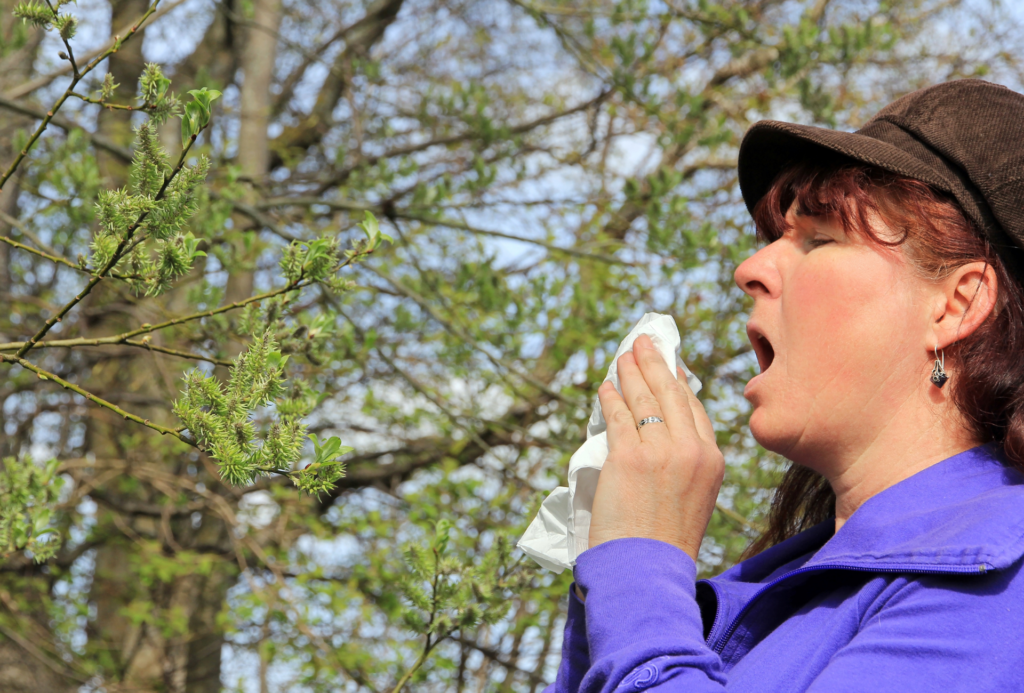Now that the tree pollen season has started again and sinuses are streaming, more people are looking to lasting remedies to relieve the nuisance. For those considering immunotherapy: how does the treatment compare to others?
Immunotherapy is an option for those in search of long-term release from running noses. But is it efficient and what are the possible downsides?
These questions are pertinent right now, with allergy specialist Didier Ebo of the University Hospital Antwerp (UZA) telling RTBF that one fifth of Belgians are allergic to tree pollen. The vast majority of them (97 to 98%) have a birch pollen allergy. On its website, the Royal Meteorological Institute of Belgium (RMI) has issued a code purple for most of the country in recent days, the highest of five possible levels.
Birch pollen is currently the biggest culprit, and that's bad news for people who suffer from hay fever.
Symptoms to watch out for
In the coming weeks, specialists expect even more pollen grains in the air, which can give different types of complaints:
- nasal complaints (stuffy nose, runny nose...)
- eye complaints (watery or itchy eyes, red eyes)
- lung complaints (wheezing or asthma-like complaints, or possibly shortness of breath, cough, mucus production)
- Skin irritation may also occur (increase in eczema)
Some people suffer from cross-allergies, in which they not only suffer from pollen, but also from allergies caused by certain vegetables, fruits, nuts, seeds or grains. This mainly concerns pome and stone fruits such as apples, pears, plums or cherries, or hazelnuts or walnuts, for example.
Those who have a combined tree and grass pollen allergy can suffer from it for months. Because in addition to the birch, there are other trees that produce pollen. Grass pollen, will also become a problem in the coming weeks.
Avoiding a tree pollen allergy is difficult or almost impossible. After all, you can't constantly keep the windows closed or avoid going outside during the spring or summer. But what can people do who suffer from the allergy? Apart from locking oneself away until Autumn, there are two options: fighting the symptoms or immunotherapy.
Combat symptoms
To combat the symptoms, you can start with nasal sprays – preferably used well in advance of the tree pollen season. "Usually that's a cortisone preparation," Ebo told RTBF. "Antihistamines may also work. If there are asthma-like complaints, you can start working with puffers in a second step."
Another option is immunotherapy, in which people receive a tree pollen allergy by a tree pollen extract, which is either injected into the upper arm, or it is ingested via droplets or tablets under the tongue, Ebo explains.
"With immunotherapy, we will try to influence the condition itself, so that the patient becomes tolerant and ultimately has fewer complaints. In the longer term, the need for a different therapy should be greatly reduced."
Immunotherapy is not intended for everyone. Doctors must work very selectively and follow both the complaints and the tests very closely. For example, it is very important to check that there is no other therapy taking place at the same time.
Moreover, tree pollen immunotherapy is no guarantee of success: "There are no methods to predict whether or not it will work," Ebo told RTBF.
Related News
- Global numbers of allergy sufferers to explode in the next 30 years, WHO report shows
- Hay fever season starts next week
Furthermore, immunotherapy takes three to five years. The operation is expensive, costing €500 to €800 euros per year, which is not reimbursed by health insurance companies.
Ebo is already calling on the government to change this "in very specific, well-defined cases because there are people who do not try the therapy because they find it too expensive."
Belgian health institute Sciensano provides some tips to relieve hay fever symptoms:
- Wear a face mask
- Clean your nose with water
- Wear (solar) glasses to avoid contact reactions
- Take a shower and wash your hair regularly
- Avoid physical exertion, especially during the driest periods
- Use paper handkerchiefs and systematically discard them after each use
- Do not dry laundry outside
- Keep windows closed when driving
- Avoid adding irritating or allergenic factors to your environment (tobacco, home fragrances, candles, incense, cleaning products or DIY products, etc)

